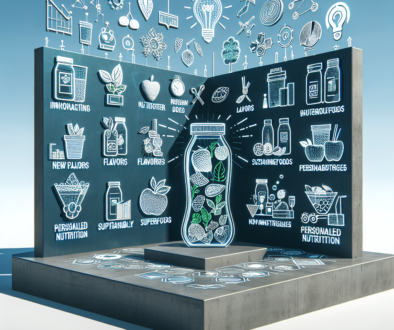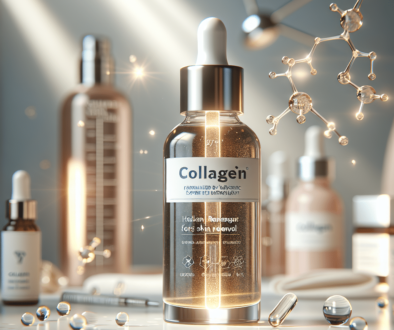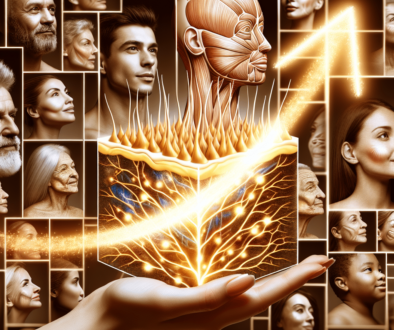Fabrication Of A Three-Dimensional Fish Collagen Scaffold And Its Biocompatibility Characterization
Keywords
Fish Skin Collagen, Human Stromal Keratocytes, Pacific Cod, Biocompatibility, Three-Dimensional Collagen Scaffold, Human Corneal Stromal Cell, Biocompatibility, Fish Skin Collagen, Gadus Macrocephalus, 3D Collagen Scaffold
Abstract
Abstract: In order to evaluate the feasibility of using deep-sea fish collagen to prepare corneal carrier scaffolds for tissue engineering, fish skin collagen was used for the first time to prepare three-dimensional collagen scaffolds and study its biocompatibility. Purified fish skin collagen derived from Pacific cod (Gadus macrocephalus) is used. After freeze-drying, 1-ethyl-3-(3-dimethylaminopropyl)carbodiimide (EDC)/N-hydroxybutyrate is used. A three-dimensional collagen scaffold was prepared using diimide (NHS) cross-linking agent, and its transparency and tissue structure were detected using appearance photography, photometer transmittance, frozen section hematoxylin violet-eosin (HE) staining and scanning electron microscopy; After inoculation of DiI (1,1′-dioctadecyl-3,3,3′,3′-tetramethylindocarbocyanine perchlorate) fluorescently labeled non-transfected human corneal stromal (HCS) cells, HE staining of frozen sections and fluorescence observation were used to identify the cells. The migration and distribution within the scaffold, and biocompatibility evaluation used MTT (thiazolyl blue) and immunocytofluorescence techniques to detect the impact of the scaffold on HCS cell viability and expression of marker proteins and functional proteins. The results showed that the prepared three-dimensional collagen scaffold was extremely transparent and presented a uniform grid-like structure with a pore size of 50-130 ¦Ìm. After inoculating HCS cells and culturing them in vitro for 3 days, a large number of cells were found to have migrated into the scaffold and were distributed Relatively uniform; the scaffold extract does not have any adverse effects on HCS cell viability; and the cells that migrate into the scaffold still maintain their marker protein – vimentin, cell connection forming protein – integrin ¦Â1, E-cadherin and gap Positive expression of connexin-43, membrane transport protein-sodium-potassium pump, and anti-UV protein-aldehyde dehydrogenase. In summary, the three-dimensional collagen scaffold prepared using Pacific cod skin collagen has good transparency and tissue structure, which is not only suitable for the smooth migration of HCS cells, but also has good biocompatibility for HCS cells, and is expected to be used as a carrier scaffold Research on the in vitro construction of tissue-engineered cornea. Abstract: To verify the feasibility of deep-sea fish collagen to be utilized in fabrication of the scaffold for tissue-engineered cornea, a novel three-dimensional(3D)collagen scaffold was produced using fish skin collagen for the first time and its biocompatibility was evaluated in this study. After freeze dried fish skin collagen, purified from the skin of Gadus microcephalus, was cross-linked using N-(3-Dimethylaminopropyl)-N’ -ethylcarbodiimide hydrochloride crystalline(EDC)/N-Hydroxysuccinimide(NHS), a 3D-collagen scaffold was obtained. Its transparency and histological structure were detected and identified by macroscopy, photospectrometry, hematoxylin-eosin(HE)staining of frozen sections, scanning electron microscope. After DiI(1,1′-dioctadecyl-3,3 ,3′,3′-tetramethylindocarbocyanine perchlorate)-labeled human corneal stromal(HCS)cells were inoculated onto the scaffold, the immigration and distribution of the cells were identified by HE staining of frozen sections and fluorescent microscopy. The biocompatibility of the scaffold to HCS cells were characterized by MTT assay and immunocytofluorescent microscopy to examine the cell viability and expression patterns of marker protein and functional proteins. Our results showed that the fabricated 3D-collagen scaffold had an excellent transparency, uniform organized reticular structure with pore size of 50- 130 ¦Ìm. After HCS cells were Journal of Shandong University (Science Edition) Volume 51 – Issue 1 Yuan Xiaolong, et al.: Preparation and biocompatibility study of three-dimensional fish collagen scaffold=-inoculated onto the scaffold, a lot of the cells could migrate into the scaffold, and the inoculated HCS cells distributed regularly in the scaffold 3 days after cultured in vitro. Moreover, the extracts of the scaffold had no obvious adverse effects on the viability of HCS cells. The inoculated HCS cells still maintained the positive expression of the marker protein of vimentin, cell junction proteins of integrin ¦Â1,
For further information of this article and research, feel free to contact our team for asssitance.
Original research was done by YUAN Xiao-long, XU Bin, FAN Ting-jun
About ETChem
ETChem, a reputable Chinese Collagen factory manufacturer and supplier, is renowned for producing, stocking, exporting, and delivering the highest quality collagens. They include marine collagen, fish collagen, bovine collagen, chicken collagen, type I collagen, type II collagen and type III collagen etc. Their offerings, characterized by a neutral taste, and instant solubility attributes, cater to a diverse range of industries. They serve nutraceutical, pharmaceutical, cosmeceutical, veterinary, as well as food and beverage finished product distributors, traders, and manufacturers across Europe, USA, Canada, Australia, Thailand, Japan, Korea, Brazil, and Chile, among others.
ETChem specialization includes exporting and delivering tailor-made collagen powder and finished collagen nutritional supplements. Their extensive product range covers sectors like Food and Beverage, Sports Nutrition, Weight Management, Dietary Supplements, Health and Wellness Products, ensuring comprehensive solutions to meet all your protein needs.
As a trusted company by leading global food and beverage brands and Fortune 500 companies, ETChem reinforces China’s reputation in the global arena. For more information or to sample their products, please contact them and email karen(at)et-chem.com today.



